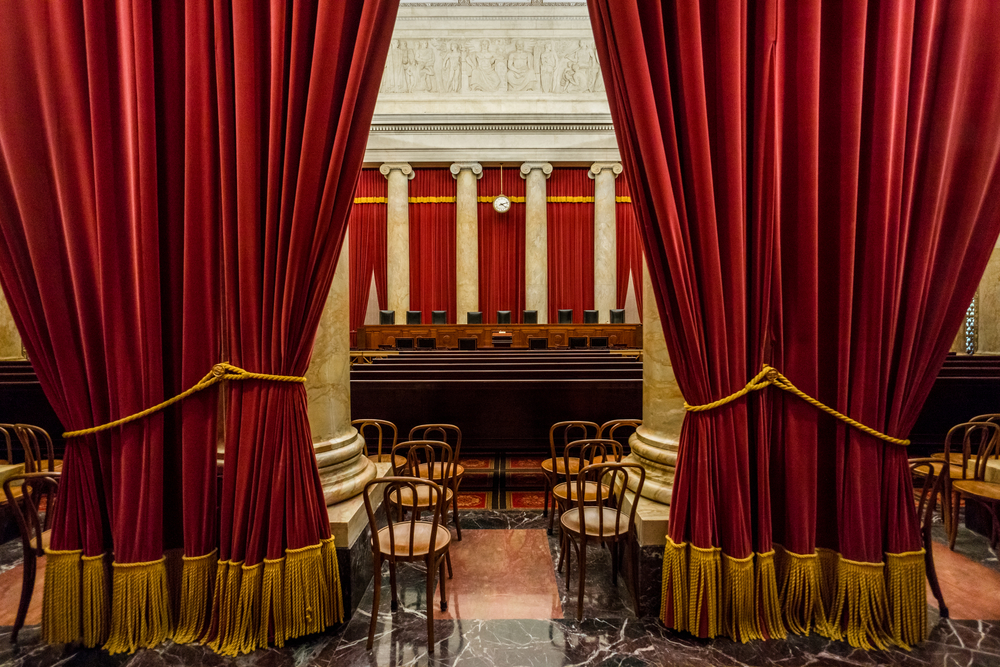Presidential commission divided on Supreme Court expansion, ability of Congress to impose term limits

Image from Shutterstock.
A presidential commission studying proposals to change the U.S. Supreme Court is divided on the wisdom of expanding the number of justices and the ability of Congress to impose term limits by statute.
The Presidential Commission on the Supreme Court of the United States released draft materials Thursday, report Law.com, Reuters, USA Today and Law360.
President Joe Biden had created the commission in April to study proposals to reform the high court.
The 36-member commission concluded that Congress has broad power to expand or shrink the size of the Supreme Court, but “commissioners are divided on whether court expansion would be wise,” according to one of the commission’s draft documents.
On the plus side, a larger court might be able to decide more cases and spend more time on emergency petitions. Presidents selecting justices would have a greater chance to “select individuals who reflect the rich diversity of the nation,” the report said.
Proponents also argue that expansion could help restore balance to the court and increase its legitimacy. Failing to respond to hardball tactics since 2016, proponents argue, could encourage more aggressive measures in the confirmation process, such as a refusal to have hearings on any judicial nominee.
But the report warned that court expansion would be perceived by many as a partisan maneuver, at least if it is done soon and all at once. And court expansion today could lead to a continuous cycle of future court expansions.
“If the country and the political system were to be embroiled in repeated fights over court expansion,” the draft document said, “that alone could harm the Supreme Court’s public reputation. The public might come to see the court as a ‘political football’—a pawn in a continuing partisan game.”
Turning to term limits, the report said commission members are divided on whether Congress has the power to impose term limits by statute.
“Some believe it is possible; others believe any statutory system would encounter so many constitutional problems it would be unwise to proceed that way,” the report said.
Those favoring term limits argue that they would make judicial appointments “more predictable and the composition of the U.S. Supreme Court more rationally related to the outcome of democratic elections over time,” the report said. In addition, regular appointments could make the appointment process seem more fair and less arbitrary.
But term limits might destabilize Supreme Court doctrine if new justices are willing to overrule their predecessors or narrow their precedents. In addition, litigants might try to time cases based on whether a favored or unfavored justice will still be on the court.
Regular appointments also “might reinforce the message that appointments to the Supreme Court are the spoils of politics.”
Turning to other matters, the commission expressed support for a code of conduct for the Supreme Court and continued live audio of oral arguments.
“Perhaps further experience with simultaneous audio will encourage the court to try cameras as well,” the commission said.
See also:
ABAJournal.com: “Justice by Numbers: Proposals resurface to expand the size of the court”
ABAJournal.com: “Democrats introduce bill to expand Supreme Court; opponents warn of ‘politicians in robes’”
ABAJournal.com: “As Biden staffs SCOTUS reform group, GOP senators back constitutional amendment to block expanded court”
Write a letter to the editor, share a story tip or update, or report an error.


